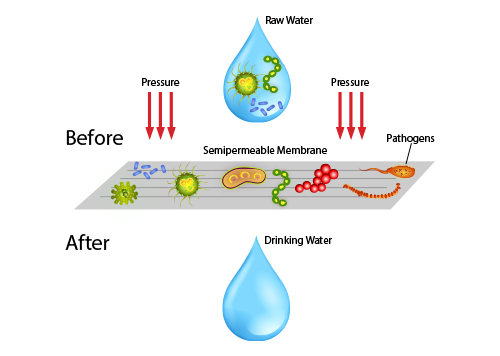The Connection Between Alcohol and Kidney Disease
If you have kidney disease, you may be concerned about the link between alcohol and your kidneys. There are a few key signs to watch out for, as well as some tips for reversing the damage. This article will help you understand the connection between alcohol and kidney disease and how much alcohol is safe for you to drink.
What are the signs of kidney damage from alcohol?
Chronic alcohol abuse can damage the kidneys. Over-consumption of alcohol may cause the kidneys to not filter waste properly, and it may result in an illness called acute kidney injury. This condition can lead to seizures or even a coma. Chronic alcohol use can also cause urinary tract infections, which can lead to pain in the kidneys. This is because alcohol increases the acidity of the urine, which can irritate the bladder’s lining.
The kidneys are a vital organ that controls water intake and output, balances minerals in the body, and produces essential hormones. Damage to the kidneys can lead to serious medical problems, and they must be treated early. Regular heavy drinking can double your risk of chronic kidney disease, and if you’re also a smoker, your risk is even higher.
The kidneys filter the blood and remove toxins, but alcohol damages the kidneys in various ways. Alcohol decreases the kidney’s ability to filter the blood and causes it to work harder. Alcohol also results in dehydration, which makes it difficult for the kidneys to keep normal water levels in the body. This can negatively affect other organs and cells.
Can you damage your kidneys by drinking alcohol?
According to the National Kidney Foundation, moderate alcohol consumption can actually protect the kidneys. Even if you drink in moderation, excessive drinking can cause a host of health problems. Alcohol can also aggravate kidney disease. If you have kidney disease, make sure you talk with your doctor about drinking alcohol.
Drinking alcohol affects the kidney’s ability to regulate body fluids. It alters the composition of fluids and affects the hormones that control kidney function. It also affects the water and electrolyte balance in the body. The effects of alcohol vary with the level of alcohol consumption, the duration of alcohol consumption, and the other health conditions present in a person.
Healthy functioning kidneys are essential for human health. A person’s kidneys filter out toxins and fluids from the blood. Drinking alcohol increases the risk of developing kidney failure and other life-threatening problems. The filtration system of the liver and kidneys must work in tandem to keep the body healthy.
How much alcohol can you drink with kidney disease
Drinking alcohol is risky for people with kidney disease. It can impair judgment, motor skills, and memory. Drinking only in moderation is best. Before drinking, talk to your doctor. Most experts say one drink is equivalent to 12 ounces of beer, five ounces of wine, or 1.5 ounces of hard liquor. While occasional drinking will not have negative effects on kidney health, excessive alcohol consumption can affect your health.
In general, moderate alcohol consumption is not a health risk. Research has shown that drinking one to two drinks a day is safe for healthy people. But drinking alcohol in excessive amounts can be harmful for kidney disease and other organs. If you already have kidney disease, it’s important to talk to your nephrologist and renal nutritionist to determine if you can safely drink alcohol.
Drinking alcohol is a common social activity for many people. But it can also impair the kidney’s ability to filter urine and stabilize its acid-base balance. In addition, excessive alcohol consumption can lead to other health problems such as high blood pressure. High blood pressure can increase the risk of kidney failure.
Can you reverse kidney damage from alcohol?
Kidneys are one of the body’s most essential organs, and they play a vital role in keeping us healthy. They filter our blood, regulate our water intake, and produce vital hormones. Any threat to their function is serious. Alcohol abuse is a major contributor to kidney disease. There are several ways to stop alcohol use and recover from its harmful effects.
The kidneys filter alcohol from the blood. However, when this filtering system becomes impaired, it is unable to function properly and toxins build up, causing dehydration and malnourishment. It may even lead to kidney failure. Treatment for alcoholism involves breaking the mental and physical hold of alcohol on the body, as well as the mental and emotional support from loved ones.
Binge drinking can cause a sudden drop in kidney function. This is known as acute kidney injury. Fortunately, acute kidney damage can be reversed if the drinking stops. However, the recovery time is dependent on how much alcohol you consume and how long you are under the influence of alcohol. The risk of developing chronic kidney disease is higher in heavy drinkers than in nondrinkers. People who smoke also have an increased risk of chronic kidney disease.
What happens if you drink alcohol everyday?
Drinking alcohol daily can have negative effects on your health. Regular consumption can lead to liver disease, heart problems, and even weight gain. It also reduces the amount of fluid in your body. Alcohol can also decrease the function of your kidneys. These organs are responsible for filtering your blood and removing toxins, so excessive drinking can damage them.
Daily consumption of alcohol is more harmful than you think. Your liver is under a lot of strain when it processes alcohol on a daily basis. The calories in alcohol can also cause weight gain. Experts recommend drinking no more than 14 units per week. And remember to include at least 3 drink-free days every week.
Research shows that moderate drinkers have lower risk of cardiovascular diseases than heavy drinkers. This is due in part to a gene that helps metabolize alcohol. People who have two copies of the gene for alcohol dehydrogenase have a lower risk of cardiovascular disease than those with one copy of the enzyme.
What is considered heavy drinking?
Heavy drinking is defined as consuming more than three drinks a day for men and seven or more for women. This level is also defined by the Centers for Disease Control and Prevention. Women who drink less than four drinks per day are not considered heavy drinkers. Heavy drinkers consume more than seven drinks per week.
Heavy drinking is a sign of alcohol dependency, and can lead to a number of serious health issues. It is important to recognize the signs of a drinking problem, and seek treatment. In some cases, this treatment can save a person’s life. Alternatively, it can help them regain their mental health.
Heavy drinking increases your risk of heart disease, stroke, and liver disease. It also weakens your immune system, making you more susceptible to illness. It also affects the way you think, speak, and make decisions. Alcohol abuse can also result in serious mental health issues such as dementia. You may even experience painful nerve damage.
Does alcohol raise creatinine levels?
While there is considerable controversy regarding the relationship between alcohol and kidney disease, there are a few studies that have been conducted on the subject. One population-based case-control study concluded that the intake of alcohol is associated with an increased risk of end-stage renal disease. This study found that those who consumed more than 7 drinks per week had a higher risk of developing kidney disease than those who drank less than two drinks per week.
The National Kidney Foundation recommends that alcohol consumption be kept at a low level. Despite the negative effects of alcohol, moderate drinking has many positive effects on kidney health. It is important to talk to your doctor about alcohol intake if you have any kidney disease. It is also important to remember that alcohol can interfere with the effects of medications, so it is important to talk to your physician about the right amount for you.
Although it can be difficult to quit alcohol, many people with kidney disease can recover. In fact, many problems associated with alcohol use resolve after at least four weeks. However, in some cases, it may take longer than this to recover. The recovery time depends on several factors, such as the amount of alcohol consumed, other health conditions, and the type of damage to the kidneys.
What are the first signs of kidney disease?
Alcohol consumption can cause serious damage to the kidneys. The alcohol in the body dehydrates the body, causing the kidneys to lose fluid and function improperly. Chronic dehydration can lead to kidney stones. If left untreated, dehydration can be treated with fluids, electrolytes, carbohydrate solutions, or antibiotics.
If you drink alcohol on a regular basis, you can increase your risk of developing acute kidney injury, which is characterized by a rapid decline in kidney function. This type of acute injury usually resolves on its own, but drinking excessively can increase your risk of chronic kidney disease. This type of damage can lead to kidney failure and can even be life threatening.
The first symptoms of kidney failure can be difficult to identify. They can be sudden, stabbing, or dull, and are often accompanied by a high blood alcohol level. However, some people can experience acute kidney failure without any warning signs. If you have these symptoms, you should contact your doctor immediately.



